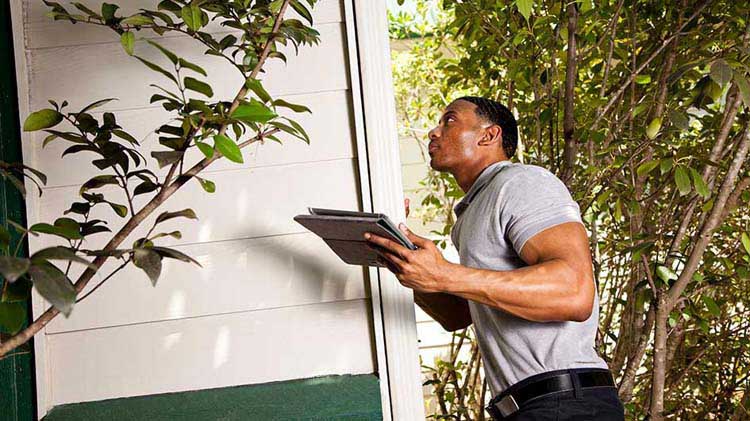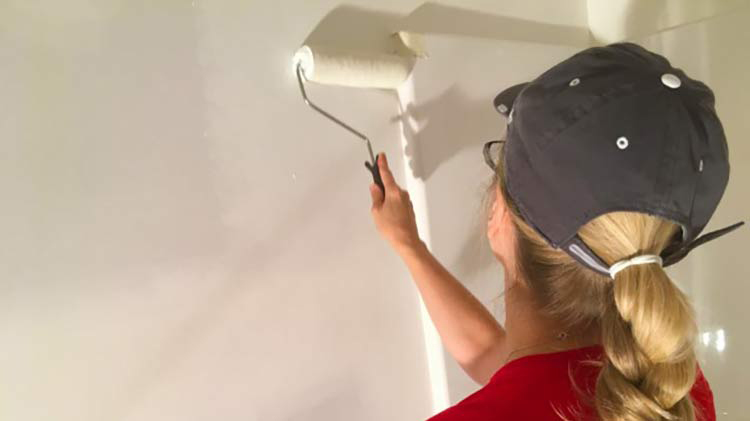What is homeowners insurance and what does it cover?
When protecting your most valuable investment it's important to know if your home is properly insured for your needs. What are the policy coverages, forms and exclusions?
What is homeowners insurance?
Homeowners insurance is a type of insurance that provides coverage for your home and personal property in the case of a covered loss. It can also provide liability coverage if an accident or injury occurs in your home or on your property. Homeowners insurance is not only desired, but in many cases, required by your mortgage company so they will also be financially protected if your home experiences a covered loss.
Key takeaways
- Dwelling coverage helps pay to repair or rebuild your home if your property is damaged.
- Personal property coverage helps replace your personal belongings if they are stolen or destroyed.
- Liability coverage helps protect you if an accident or injury takes place on your property.
- Additional living expenses (ALE) could pay for temporary lodging and meal expenses if your home is uninhabitable.
In the case of a covered loss, many types of homeowners insurance coverage provide:
Why homeowners insurance?
A home is the single biggest investment individuals might ever make. It is typically the largest asset on the family's "balance sheet." Also, the contents of a typical home, in the form of furniture, appliances, clothing, family heirlooms and other movable personal belongings, represent a substantial additional investment. The unprotected loss (or partial loss) of a home and its contents to theft, fire, windstorm or some other disaster, could be financially devastating.
Further, everyone faces the risk of personal liability. For example, a visitor to the residence could slip and fall. Such accidents can result in court decisions awarding large sums to the injured party for medical expenses and pain and suffering.
Get a homeowners insurance quote
Want to protect your home?
What does homeowners insurance cover?
Originally, a standard homeowners policy covered only the risk of fire. Today's homeowners policies help protect against numerous perils of modern life, in one "package" policy. While policies do vary, a typical homeowners policy can provide insurance protection for the following:
- Home: The physical dwelling structure and other structures attached to it.
- Other structures: For example, a detached garage, pool house, guesthouse, greenhouse or tool shed on the residence property.
- Personal property: This helps cover the home's contents, such as furniture, appliances or clothing. Certain types of property may have specific dollar limits. Some personal items, such as jewelry, silverware and collectibles may have "internal" policy limits and could be covered under a personal articles policy.
- Additional living expense (ALE): If a home is damaged by a covered peril, the additional living expense allocation helps with the costs of hotel bills, apartment or rental home, meals and other living expenses if your home is uninhabitable from a covered loss. This policy section may also reimburse a homeowner for lost income if a room in the house were rented out.
- Personal liability: Protects against legal liability for bodily injury or property damage if a third party is accidentally injured or their property is damaged.
- Medical payments: Also known as guest-medical payments, this section provides limited coverage if a third party is accidentally injured and needs medical treatment.
Homeowners insurance policy forms
Several organizations work with insurance companies to develop standardized homeowners policies. While the details of a particular policy can vary, these standardized policies or forms are generally very similar.
- Broad form policy (HO-02): This policy offers coverage for the home, other structures and personal property on a named-peril basis. Only the perils listed are covered.
- Special form policy (HO-03): Coverage for the home and other structures is written on an all-risk basis – damage from any peril is covered unless specifically excluded.
- Comprehensive form (HO-05): This policy offers coverage for the home, other structures and personal property on an all-risk basis – damage from any peril is covered unless specifically excluded.
- Modified form coverage (HO-08): This policy form is generally used with homes where the cost to rebuild exceeds the market value of the property. Protection is provided on a named-perils basis. Payment is usually limited to the actual cash value.
What does homeowners insurance not cover?
The standard homeowners policy specifically excludes several perils from coverage. Policy coverage for these excluded perils can generally be added through an endorsement and payment of an additional premium. Typical policy exclusions might include the following:
- Ordinance or law: Many homeowners policies do not cover losses or have limitations, due to a law or ordinance of the community in which the home is located. For example, if your property is damaged or destroyed, changes in building codes could result in additional uncovered expenses when your home is repaired or rebuilt. Ordinance or law coverage is included in some package policies often as a percentage of the dwelling coverage (10%, 25%, 50%, etc.). This coverage is required in some states.
- Earth movement: Excludes loss caused by events such as earthquakes, volcanic eruptions, mudslides or landslides.
- Backup of sewer and drains: Refers to damage from water that backs up from sewers or drains. Many policies contain dollar limits for water damage due to such things as a broken pipe.
- Flood damage: Refers to damage from rising water or surface water.
- Mold exclusion: Many insurance companies exclude or limit coverage for mold damage.
- Other exclusions: Other specific exclusions include war, nuclear hazard, neglect and intentional loss.
Other homeowners insurance considerations
- Actual cash value (ACV): Dwelling and other structures: If a home is damaged or destroyed, a homeowners policy will generally pay (within policy limits) to rebuild or repair on an "actual-cash-value" basis for a covered loss. In simple terms, ACV means replacement cost minus depreciation for wear and tear. Reimbursement on this basis could leave a homeowner short of the total funds needed to restore the home.
- Replacement cost value (RCV): Within the HO contract, or through an endorsement and payment of an additional premium, reimbursement can be on a "replacement-cost" basis. Replacement cost means, simply, restoring the home to its pre-loss condition using materials and workmanship of similar quality. In some policies, the availability of this feature requires the homeowner to maintain coverage on the home equal to at least 80% of the cost to rebuild or repair. If insurance coverage were not maintained at the 80% level, any loss would be reimbursed at a lesser amount or on an actual-cash-value or depreciated basis.
- Personal property (contents): May be written on an ACV or RCV basis. Coverage is normally on an ACV basis until replacement occurs. If the policy provides RCV coverage, the depreciated amount is paid after the replacement occurs.
- Inflation guard rider: The standard policy forms can usually be endorsed to provide for automatic, periodic increases in policy limits. These increases in policy coverage generally apply to both the dwelling and contents and help avoid being underinsured due to inflation. This endorsement helps meet the 80%-of-replacement-cost condition to qualify for replacement cost on the home.
Understanding home insurance policies
An insurance policy is a written contract between the insured and the insurance company. The protection provided typically represents a significant part of an individual's overall risk management program. Thus, an insured should thoroughly read and understand key policy provisions such as the following.
- What perils are covered in the policy? It depends on the policy. A basic policy may not provide as much protection as you would need.
- What perils are not covered? For an additional premium, perils or situations not covered can often be added to a policy.
- What are the limits of coverage? This refers to the maximum dollar amount the insurance company will pay in the event of a covered loss.
- What are the deductible amounts? A deductible is a dollar amount or percentage the insured must pay before the insurance company pays its portion of the loss.
- In the event of a loss, what are the insured's responsibilities? A policy will usually list the steps that must be taken in the event of a loss.
Homeowners insurance vs mortgage insurance
A common misconception is that homeowners insurance and mortgage insurance are the same. Homeowners insurance helps protect your property from covered losses. Mortgage insurance, also known as PMI (private mortgage insurance) is usually a lender requirement for homebuyers who put less than a 20% down payment on the total property cost.
What factors impact homeowners insurance cost?
Your home insurance premium can depend on several important factors, such as:
- Location: Homes in higher crime rate locations or prone to natural disasters often have higher rates.
- Coverage limits and deductibles: A higher deductible can decrease your premium but could cost you more if you file a claim.
- Credit score: A better credit score may lead to lower insurance premiums.
- Insurance company: Many companies offer discounts for bundling policies or having a home security system.
- Age of your home: The age and condition of your home can significantly impact your rate. If your home is a newer build or is made with impact-resistant materials, it could cost you less to insure.
- Claim history: The more claims you have, the higher your premium could be.
Seek guidance
Finding the right agent can be beneficial to help educate you on the different coverages you might need and explore ways to help you save like bundling your insurance. Ensure you have all the coverage you need, so you and your family are financially protected if the unexpected happens.
Insurance agents can help provide answers to detailed questions about a particular policy. These individuals can help you select the right policy and the appropriate amount of coverage for your needs.




